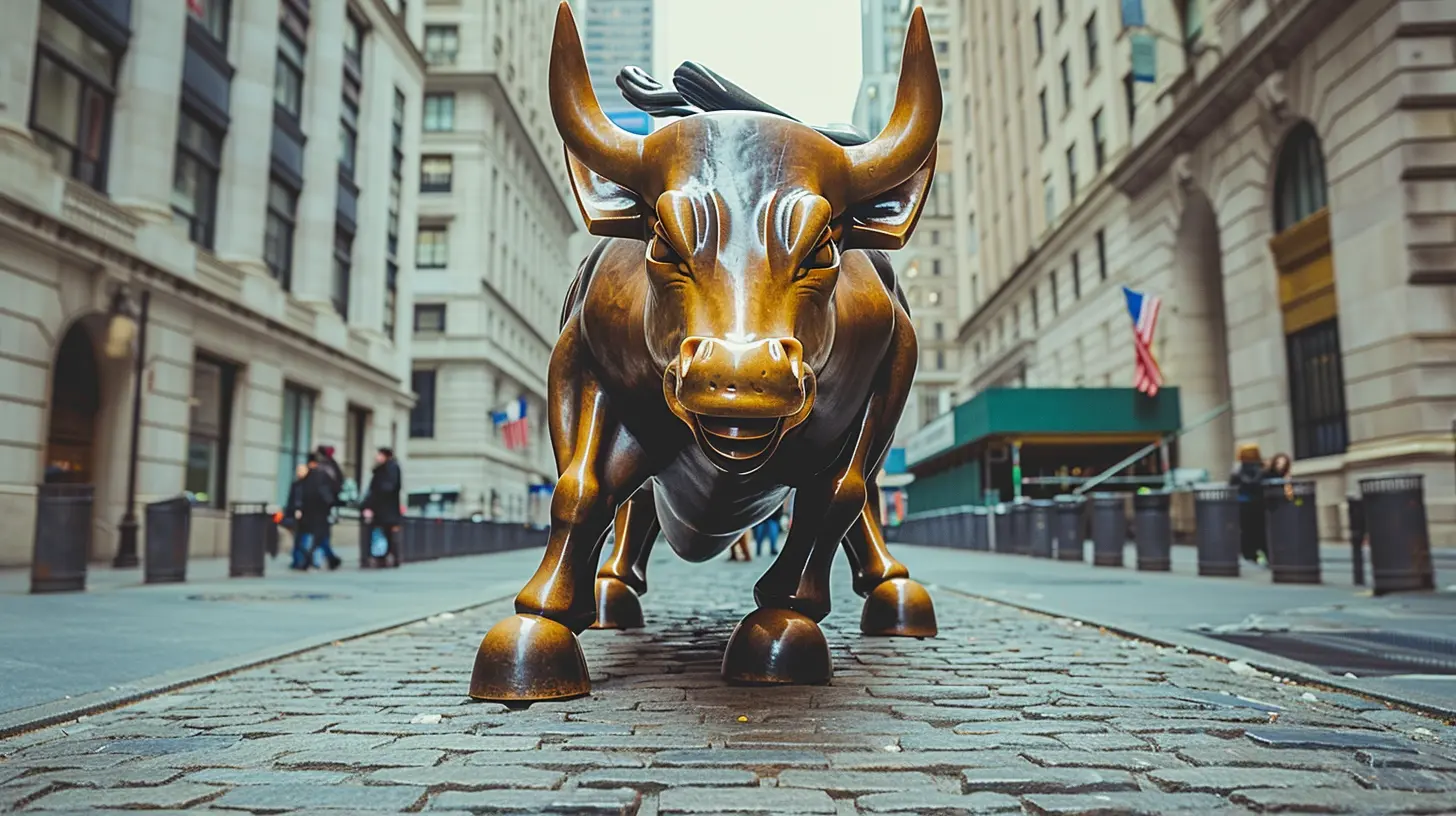How Regulatory Changes Are Affecting IPO Markets
29 September 2025
Initial Public Offerings (IPOs) have always been a big deal in the finance world. When a company decides to go public, it’s not just launching shares on the stock exchange – it's stepping into a much bigger spotlight filled with scrutiny, speculation, and a truckload of paperwork. But lately, that spotlight has been shifting. Why? Regulatory changes.
These aren’t just small, behind-the-scenes tweaks. They’re reshaping how companies view the IPO process altogether. If you’ve been watching the market, you’ve probably noticed fewer blockbuster IPOs and more companies choosing alternative routes to raise capital. This isn’t a coincidence.
Let’s take a deep dive into how today’s regulatory changes are shaking up the IPO markets and what it means for investors, entrepreneurs, and the market at large.
The IPO Market: A Quick Refresher
Before we get too far, let’s level-set. An IPO is when a private company decides to offer its shares to the public for the first time. It’s commonly seen as a major milestone. You’ve probably heard about famous IPOs like Facebook, Google, or more recently, companies like Rivian.But going public isn’t just about ringing the bell at the New York Stock Exchange. It involves navigating a maze of regulations – from filing an S-1 with the SEC to meeting ongoing disclosure and governance requirements. For years, this process has been a well-trodden path, but not necessarily a smooth one.
—

What's Changed? The Regulatory Shift
So, what’s going on with regulations that’s making everyone think twice about IPOs?1. Stricter Disclosure Requirements
Regulators have been tightening the screws when it comes to transparency. Companies now need to disclose even more detailed information about their financials, operations, and risk factors.From the SEC’s perspective, more information equals better protection for investors. But for companies, especially young startups, this can feel like airing all their dirty laundry right before a first date. It's no surprise that many are hesitant.
2. ESG Reporting Mandates
Environmental, Social, and Governance (ESG) reporting is no longer optional. Regulators are moving toward requiring companies to disclose their carbon footprints, diversity metrics, and social impact policies.While this push is well-intentioned, it adds another layer of complexity (and often cost) to the IPO process. Imagine being a growing tech startup and now having to hire an entire ESG team just to meet new reporting standards.
3. Accountability and Governance Rules
Board composition, executive compensation, and internal controls are under the microscope more than ever. Companies need to prove they’re not just profitable, but also ethically run. That’s a tall order, especially in industries where innovation often outpaces regulation.—

SPACs, Direct Listings, and Alternative Routes
Thanks to these mounting regulatory hurdles, companies are starting to look for the back door.SPACs: The Fast Pass… or Is It?
Special Purpose Acquisition Companies (SPACs) have popped up like mushrooms after the rain. They offer a faster, less regulated path to going public by allowing firms to merge with a shell company that's already listed.Sounds easy, right? But guess what – regulatory bodies are now cracking down on SPACs too. The SEC has proposed rules that would make SPACs subject to similar reporting and liability standards as traditional IPOs. Back to square one.
Direct Listings: The No-Frills Option
Another option that's gained traction is the direct listing. Instead of raising fresh capital, companies simply list their existing shares. It skips underwriters, costs less, and avoids some of the regulatory rigmarole.But here's the catch – it works best for companies that don’t need a capital infusion. Not every business falls into that bucket.
—

Impact on Company Behavior
All these changes are doing more than just altering paperwork – they’re reshaping company strategies.Going Public Later
Companies are staying private longer. In the past, firms might go public after a few years. Now, it’s not uncommon to see unicorns with billion-dollar valuations still operating privately. Think Stripe or SpaceX.Why? Because raising private capital has never been easier. Venture capital, private equity, and even crowdfunding offer companies plenty of funding without dealing with regulatory red tape.
Preparing Like Never Before
For companies that do decide to go public, preparation has become significantly more intense. They’re hiring IPO consultants, ESG advisors, and internal legal teams sometimes years in advance. It's no longer about just having a good product – you need to be audit-ready, governance-focused, and disclosure-savvy.—
Are Regulatory Changes Actually Bad?
Let’s pause here and ask a big question: Are these changes actually bad for the market?It’s easy to complain about red tape. No one loves paperwork. But regulations exist for a reason – to protect investors, promote stability, and prevent fraud (remember Enron and Theranos?).
Better transparency, stronger governance, and more responsible corporate behavior aren’t just good headlines – they're good business. In the long run, these rules can boost investor confidence and lead to a more trustworthy market.
The real challenge is balance. Go too far and you stifle innovation. Do too little, and you risk chaos.
—
Global Regulatory Landscape: A Mixed Bag
The US isn’t the only player reshaping its IPO framework. Let’s take a global view.China’s Crackdown
China has tightened its grip on tech firms looking to list abroad. Recent crackdowns have made it nearly impossible for Chinese companies to IPO in the U.S. without jumping through a thousand hoops. These moves have chilled cross-border listings and pushed companies to stay local.Europe’s Pro-Startup Moves
Meanwhile, some European nations are trying to make IPOs easier, not harder. They’ve introduced “light” IPO regimes for smaller firms to encourage growth. It’s a reminder that while some countries are tightening the belt, others are loosening it.—
Could AI Simplify IPO Regulations?
Here's a fun thought: Could artificial intelligence help streamline this whole process?AI-powered compliance tools are already helping firms flag risks, fill out forms, and stay on top of changes. In the future, companies might use machine learning to simulate IPO roadmaps, predict regulatory challenges, and assess investor sentiment.
We're not there yet, but it’s a promising frontier that could make regulations feel less like a mountain and more like a walk in the park.
—
Investor Takeaways: What This Means for You
So you're not planning to launch an IPO anytime soon? Fair enough. But these changes still matter if you're an investor.1. Do More Homework
With stricter disclosure rules, there’s more data on the table. But it also means more to digest. Investors need to get savvier about reading between the lines, especially when it comes to ESG and governance reporting.2. Expect Fewer “Unicorn” IPOs
Don’t be surprised if you see fewer exciting tech IPOs on the calendar. Many are choosing to stay private, or delay their public debut until the market (and the rules) are more predictable.3. Look Abroad
If U.S. markets are cooling due to regulatory heat, international IPOs could become more attractive. Keep an eye on emerging markets that are streamlining their regulatory processes to attract global capital.—
Final Thoughts: The Future of IPOs in a Regulated World
Regulatory changes aren't going away anytime soon – and neither are IPOs. What’s evolving is the relationship between the two.In a world of increased scrutiny, the companies that thrive will be the ones that adapt. They’ll bake transparency into their DNA, embrace ESG not just as a checkbox but as a strategy, and view regulation not as a hurdle, but as a new playing field with new rules.
As investors, founders, and finance nerds (like us) continue to watch this space, one thing’s for sure – the road to going public is getting more complicated, but also more meaningful.
We might not see another IPO frenzy like 2020 again anytime soon, but when companies do decide to go public, they’ll be better prepared, better run, and, hopefully, more trustworthy than ever before.
Cheers to a braver, smarter IPO landscape.
all images in this post were generated using AI tools
Category:
Ipo InsightsAuthor:

Zavier Larsen
Discussion
rate this article
1 comments
Anastasia Stevens
Ah, regulatory changes and IPOs—like trying to dance the cha-cha with a two-ton elephant! Just when you think you’ve got the steps down, the rules change, and you find yourself stepping on toes. Remember, folks: in finance, always keep your shoes polished and your ears open!
September 30, 2025 at 11:57 AM

Zavier Larsen
Great analogy! Navigating regulatory changes in IPOs can indeed feel like a complicated dance. Staying informed is key to avoiding missteps. Thanks for the insightful comment!


